Thinning Hair: Causes, Treatment, And Prevention Tips
Know all about the symptoms and cures to manage hair fall issues and keep it healthy.
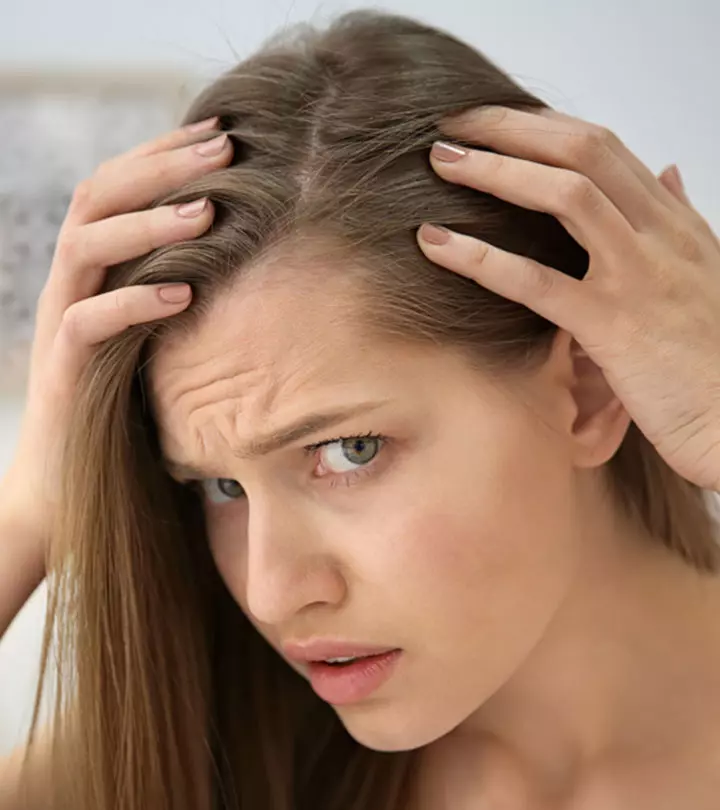
Image: Shutterstock
You are going about your daily hair care routine when you notice that your hair is losing its volume and thickness. Though thinning hair is a common symptom of hair loss, you don’t have to fret about it. It can be triggered by certain medical conditions, hormonal changes, lifestyle factors, and even nutrition deficiencies. This post exposes the many reasons your hair may be thinning down and provides some treatment options to thicken it. Keep reading.

In This Article
Causes Of Hair Thinning
Genetics, lifestyle, and hairstyling habits are three of the most common factors that cause hair thinning. If you have a family history of hair loss or alopecia areata, you have a greater chance of experiencing it.
A study of a nationwide US employer-sponsored insurance population between 2016 and 2019 revealed that the prevalence of alopecia areata (AA) ranged from 0.199% to 0.222% per 100,000 patient-years. Complete loss cases (alopecia totalis/alopecia universalis) made up 5-10% of alopecia areata (AA) cases.
The following hairstyling and lifestyle habits may contribute to hair thinning:
- Excess use of styling products like gels and hairsprays can damage your hair and cause thinning.
- Frequent chemical and hair treatments like coloring, perming, and relaxing may damage the hair.
- Tight hairstyles may also cause hair loss. The tightness and pressure on the hair roots may cause breakage and hair thinning over time.
- Lack of nutrients like iron and folic acid may also cause hair fall (1).
- Stress is linked to hair loss (2). Physiological stress like surgery, pregnancy, trauma, and psychological stress caused by any personal crisis may trigger hair loss.
- Hormonal imbalances, especially after childbirth, may trigger hair loss (3).
- Sudden weight loss causes physical stress to your body and may lead to hair loss (4).
Grace, a YouTuber, discusses her battle with stress-induced hair thinning. Revealing a diagnosis of iron and vitamin D deficiencies as potential causes, she recounts her efforts to combat hair loss. She states, “The job previously that I had was killing me. It was absolutely killing me and because of that job I wasn’t sleeping properly, I wasn’t eating properly and I couldn’t even exercise regularly because of the long hours and I was always stressed so that’s what I did, I left my job and my hair just started flourishing (i).”
Medical conditions, such as autoimmune diseases like alopecia areata, and immunodeficiency conditions may also trigger hair loss (5). If you notice unusual hair loss, consult a doctor immediately and follow the prescribed treatment method. Here is what you can also do to minimize hair loss.
Treatments For Hair Thinning
1. Scalp Massage
Scalp massage encourages blood flow, softens the scalp skin, and feels extremely relaxing. A study found scalp massages to stabilize hair loss and promote regrowth in people with hair loss issues (6). However, further studies are required to evaluate the efficacy of scalp massages for hair growth.
2. Aromatherapy
Aromatherapy is not directly linked to hair growth and loss. However, aromatherapy and essential oils can calm your mind, help you relax, and reduce stress (7). This, in turn, minimizes hair fall.
3. Anti-Thinning Shampoos
You will get prescription and OTC shampoos for hair loss at drugstores. Prescription shampoos contain anti-androgenetic ingredients that may prevent hair loss caused by DHT (a type of androgen). On the other hand, OTC anti-thinning shampoos contain amino acids and antioxidants that nourish the follicles to reduce thinning and inflammation. Consult a doctor for product recommendations.
4. Take Multivitamins
Malnourishment caused by eating disorders can cause nutritional deficiencies and trigger hair loss and thinning (8). Often, fad diets cause a nutritional imbalance in the body. Deficiency of nutrients like iron, folic acid, amino acids, vitamins B12 and D, and zinc may trigger hair loss (1). Consult a nutritionist or dietitian for a specialized diet chart. Also, talk to the doctor and get blood tests done to determine any nutritional deficiency.
5. Folic Acid Supplements
Folic acid is a type of vitamin B that helps in new cell generation. It helps the hair follicles to grow new hair (1). To combat folic acid deficiency, consume foods rich in the nutrient, like Brussel sprouts, spinach, and broccoli. You can also take folic acid supplements.
6. Apply Minoxidil
Minoxidil is a topical medication for hair loss treatment (9). This over-the-counter medication promotes new hair growth and covers bald patches. However, consult a doctor before using minoxidil as unregulated usage of the medication may cause allergic reactions.
 Quick Tip
Quick Tip7. At-Home Laser Therapy
Low-level laser therapy stimulates weak hair follicles and promotes hair growth (10). Usually, laser therapy is done under a doctor’s supervision.
However, you will also get at-home laser devices to combat hair loss. These devices target the hair follicles with the laser of a specific wavelength to promote hair growth. Compared to medical-grade lasers used by the doctor, at-home devices are less effective and take longer to show results.
8. Use Spironolactone
Your doctor may also prescribe spironolactone for hair thinning due to its anti-androgen properties. It is a medication that helps lower the levels of a hormone called testosterone, known to be linked to hair loss. Due to this, dermatologists often use spironolactone to lessen the impact of the hormone on the hair of patients, particularly women, treating issues like female pattern hair loss and acne (10). A study suggests that the medication is an effective and safe treatment option and can even enhance the efficacy of other hair loss treatments such as minoxidil (10). The same paper found that the topical application of spironolactone is much safer compared to its oral administration.
Apart from these treatments, you can take the following steps to prevent hair thinning.
Tips To Prevent Thinning Hair
1. Consume A Protein-Rich Diet
Your hair is made of protein (keratin), and that is why following a protein-rich diet can encourage thicker hair growth (1). So, if you are wondering how to get thicker hair, consume foods like fish, poultry products, dairy, and meat. If you are vegetarian, you may take protein supplements to meet the requirement.
2. Avoid Tight Hairstyles
Hairstyles like tight ponytails, buns, or tight braids expose the hair roots to constant pressure. This may cause hair loss or traction alopecia. Using heat styling devices and excess styling products can further worsen the damage. You can reverse this by trying more relaxed hairstyles like loose braids and buns.
 Pro Tip
Pro Tip3. Take Vitamin Supplements
Vitamins D and B12 are crucial for hair growth, and their deficiency may cause hair thinning and loss (12). It may also hinder your natural hair growth. Consult a doctor to determine the deficiency and take supplements to meet the daily requirements.
4. Scalp Maintenance
A healthy scalp is crucial for healthy hair. Follow good hair care practices to maintain scalp health. Oil regularly to keep your scalp and hair moisturized. Avoid excessive use of heat styling devices and chemical treatments like bleaching and coloring. Use mild shampoos and conditioners and a clarifying shampoo once in a while to remove product buildup.
5. Never Forget Conditioner
The hair from the middle to the ends is away from the scalp and devoid of natural oils. To keep it healthy and prevent dryness and breakage, use a hydrating conditioner that contains ingredients like panthenol and glycerine.
These hair care and healthy lifestyle practices will help you maintain scalp and hair health and minimize hair fall. However, if the hair fall is uncontrollable, consult a doctor immediately.
When To See A Doctor
Despite following proper hair care practices and maintaining a balanced lifestyle and diet, if you notice excessive hair fall, consult a doctor right away. Your hair fall may be caused by an underlying health condition and may require medical intervention.
Thinning hair is a common hair problem and an early sign of hair loss. Your hair may lose volume and thickness due to nutritional deficiencies, hormonal changes, medical conditions, and lifestyle factors. Tight hairstyles, excess use of styling products, and frequent chemical treatments may also contribute to hair thinning. You can go for scalp massages, aromatherapies, anti-thinning multivitamins, supplements, and laser therapy to treat this condition. Understanding the cause of your hair loss is important to determine the treatment method. You may have to follow a balanced lifestyle, proper diet, and right hair care routine to maintain hair health.
Frequently Asked Questions
Does hair thin as you age?
Yes, as you age, your hair loses its volume, elasticity, and thickness. But natural treatments and hair care products like masks and serums can make your hair strong and healthy.
Does biotin thicken hair?
Yes. Biotin increases protein and keratin production in hair. It improves hair strength and can reduce hair loss caused by a biotin deficiency.
Is hair thinning normal?
Hair thinning is normal in some circumstances, like if you are pregnant or going through menopause. But if your hair suddenly starts thinning, it could be a sign of damage and weakened strands or even hair loss.
Key Takeaways
- Hair thinning is a common issue triggered by factors like tight hair styling, nutritional deficiencies, genetics, and other lifestyle factors.
- It can be easily prevented by addressing the causes, taking proper care of the hair and scalp, and consuming a nutrient-rich diet. Treatments such as scalp massages, topical medicines like minoxidil, and laser therapy may also help.
- Taking supplements may also prevent hair loss, only if it is caused by deficiencies. Excessive hair thinning coupled with drastic hair loss may indicate an underlying and require medical intervention.
References
Articles on StyleCraze are backed by verified information from peer-reviewed and academic research papers, reputed organizations, research institutions, and medical associations to ensure accuracy and relevance. Read our editorial policy to learn more.
- Diet and hair loss: effects of nutrient deficiency and supplement use
https://www.ncbi.nlm.nih.gov/pmc/articles/PMC5315033/ - Burden of Hair Loss: Stress and the Underestimated Psychosocial Impact of Telogen Effluvium and Androgenetic Alopecia
https://www.sciencedirect.com/science/article/pii/S0022202X15309635 - Effect Of Pregnancy On The Human Hair Cycle
https://core.ac.uk/download/pdf/82326339.pdf - Female Pattern Hair Loss
https://www.ncbi.nlm.nih.gov/pmc/articles/PMC3968982/ - Alopecia Areata: A tissue specific autoimmune disease of the hair follicle
https://www.sciencedirect.com/science/article/abs/pii/S1568997205001187 - Standardized Scalp Massage Results in Increased Hair Thickness by Inducing Stretching Forces to Dermal Papilla Cells in the Subcutaneous Tissue
https://www.ncbi.nlm.nih.gov/pmc/articles/PMC4740347/ - Aroma-therapeutic Effects of Massage Blended Essential Oils on Humans
https://journals.sagepub.com/doi/abs/10.1177/1934578X1100600838 - Nutritional factors and hair loss
https://onlinelibrary.wiley.com/doi/abs/10.1046/j.1365-2230.2002.01076.x - Minoxidil: mechanisms of action on hair growth
https://onlinelibrary.wiley.com/doi/abs/10.1111/j.1365-2133.2004.05785.x - Examining the Safety and Efficacy of Low-Level Laser Therapy for Male and Female Pattern Hair Loss: A Review of the Literature
https://www.karger.com/Article/FullText/509001 - The Efficacy and Safety of Oral and Topical Spironolactone in Androgenetic Alopecia Treatment: A Systematic Review
https://www.ncbi.nlm.nih.gov/pmc/articles/PMC10010138/ - The Role of Vitamins and Minerals in Hair Loss: A Review
https://link.springer.com/article/10.1007/s13555-018-0278-6
Read full bio of Dr. Shruti Chavan
Read full bio of Anjali Sayee
Read full bio of Eshna Das
Read full bio of Monomita Chakraborty





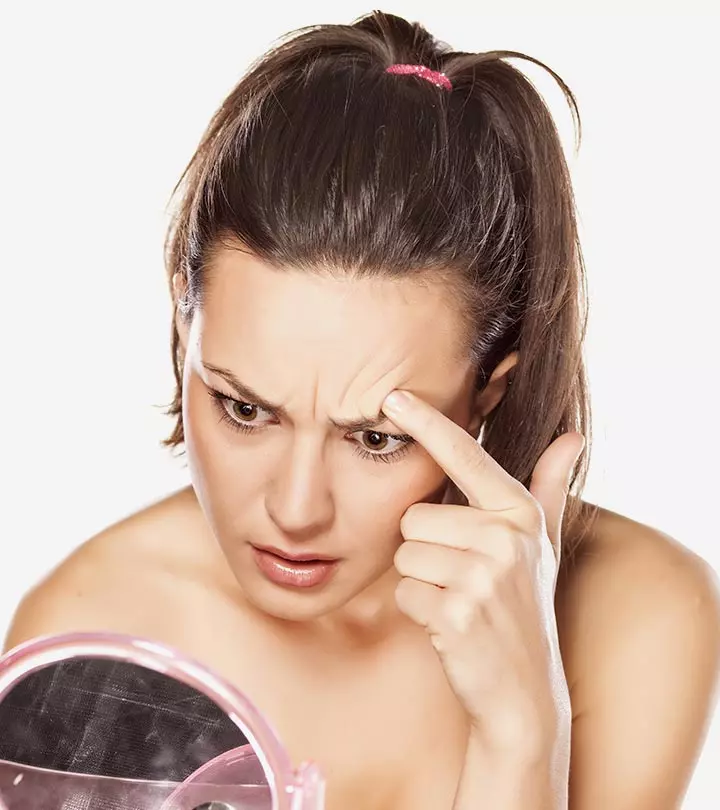
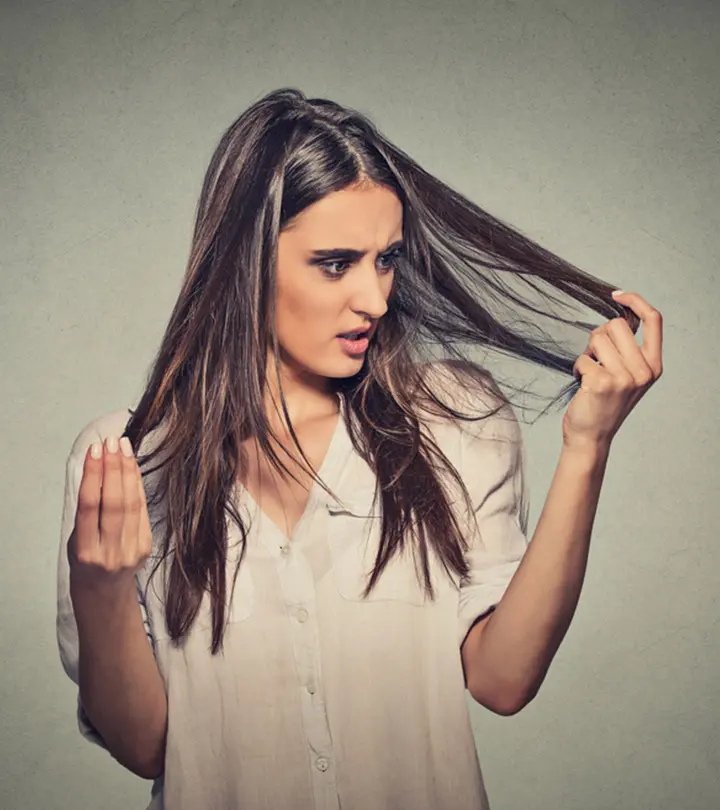
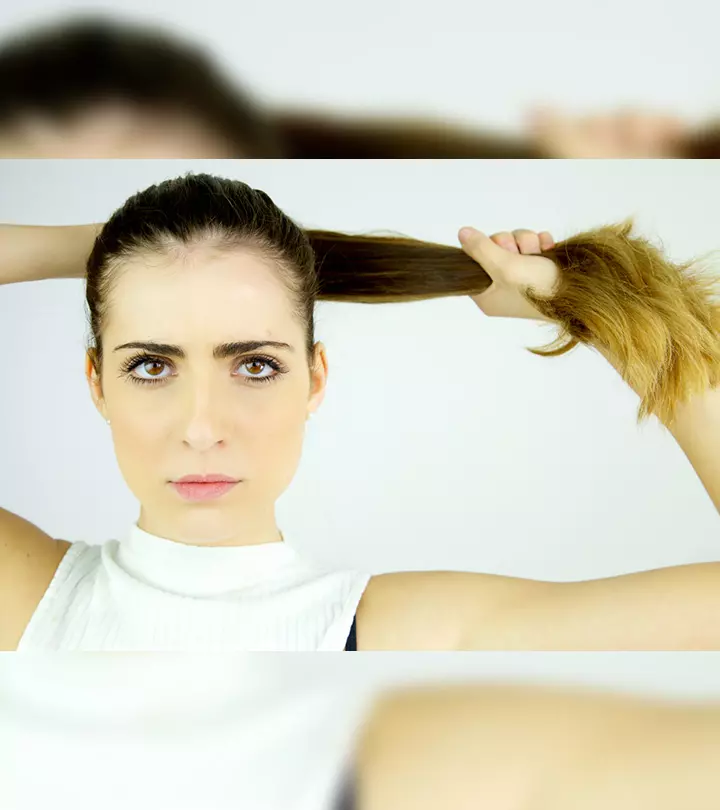
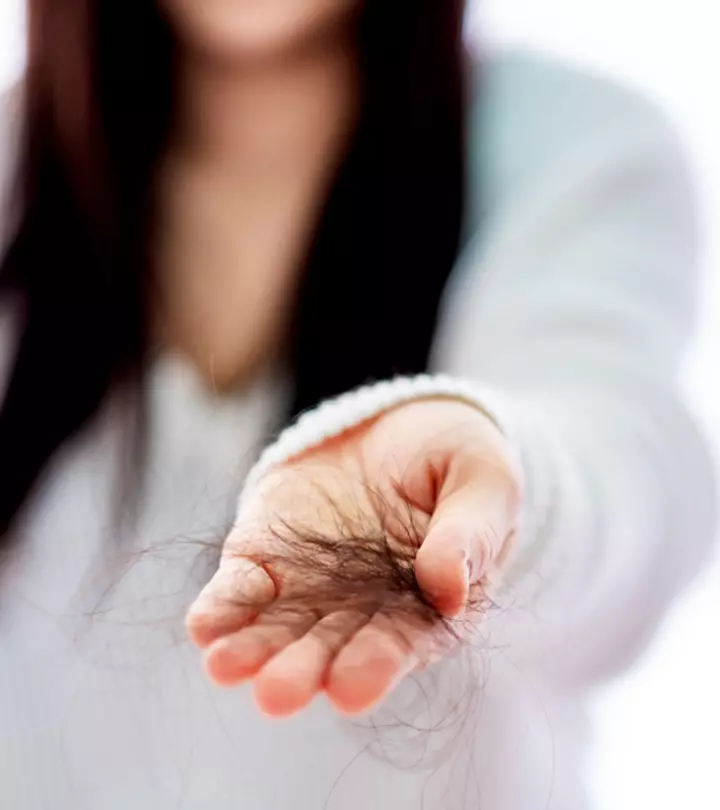
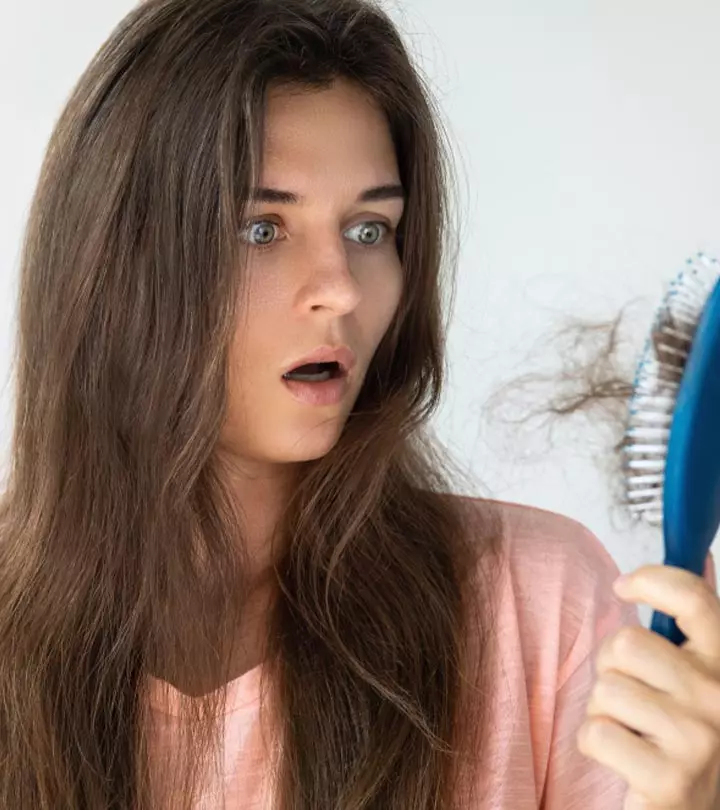
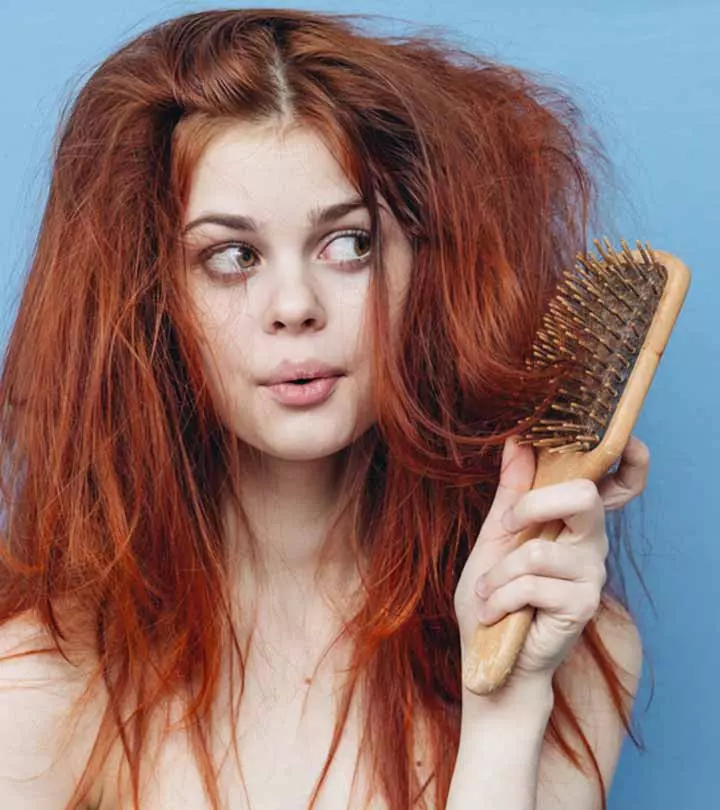
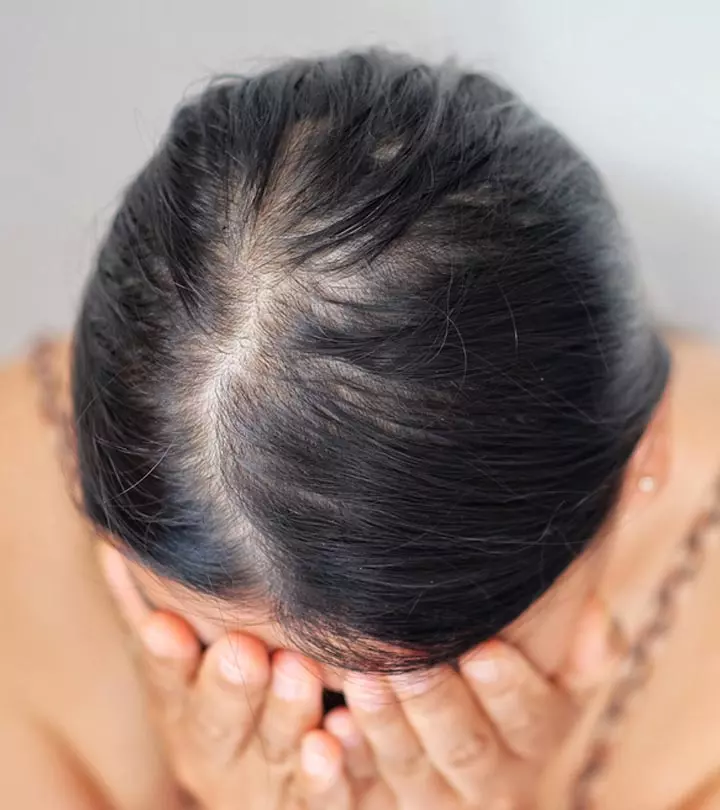
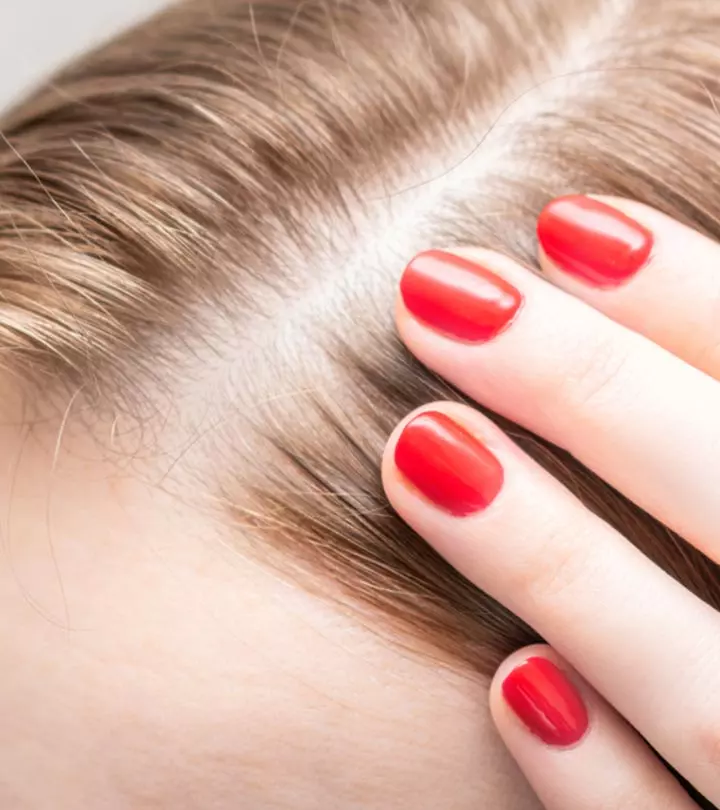
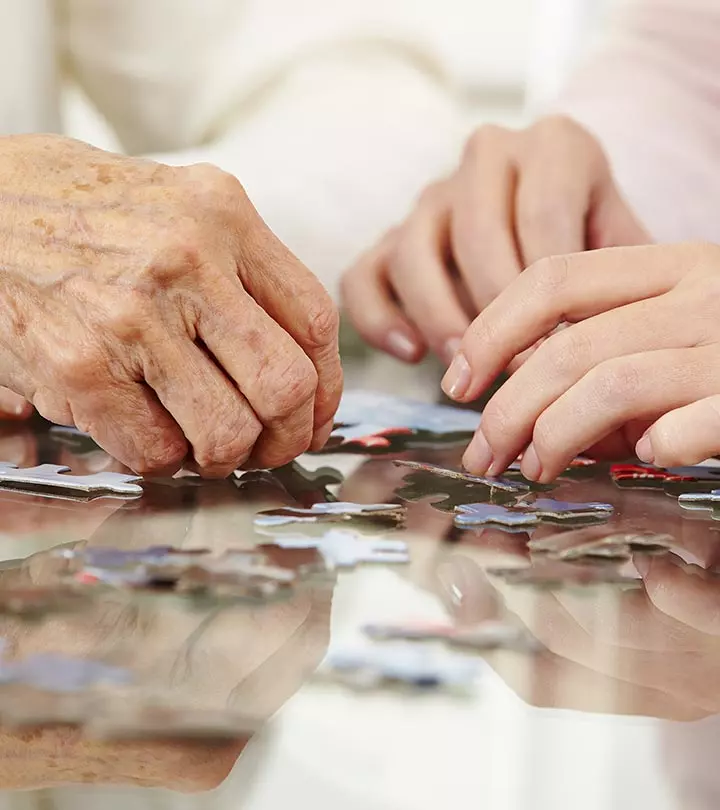
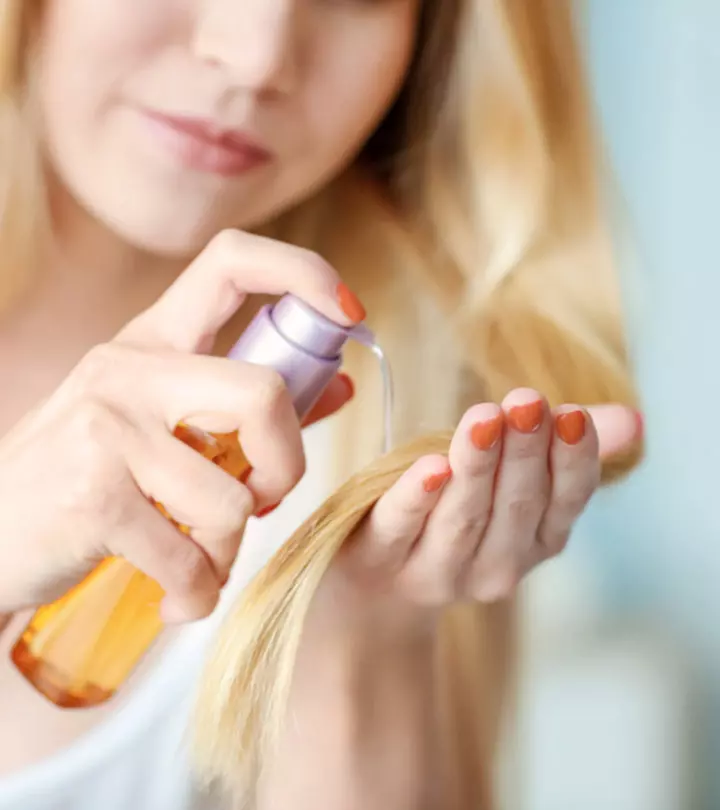

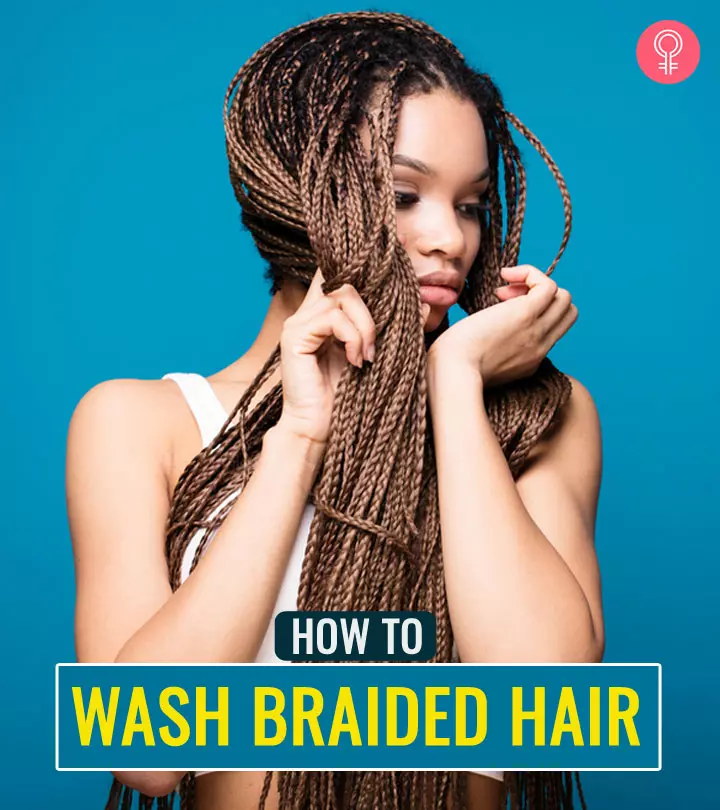
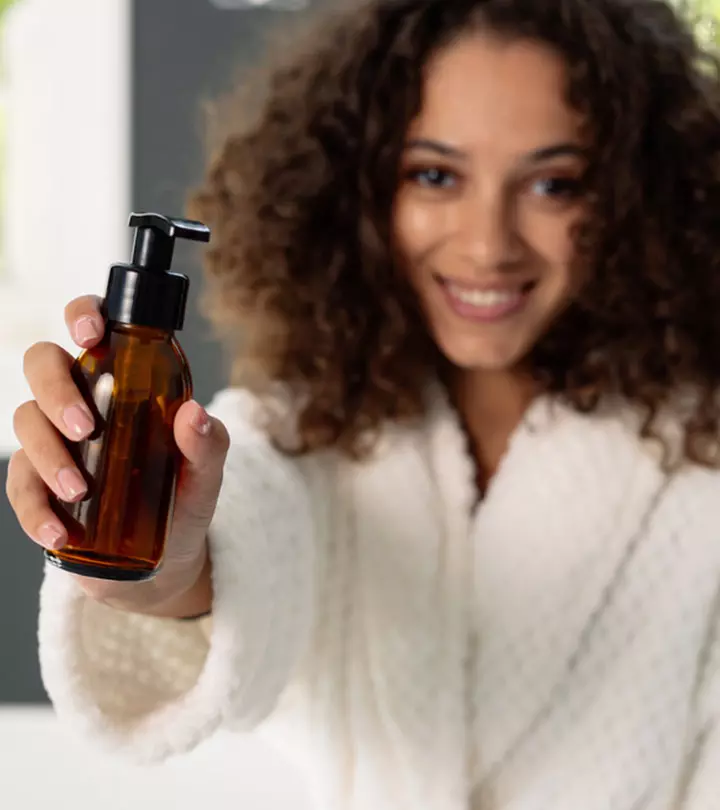

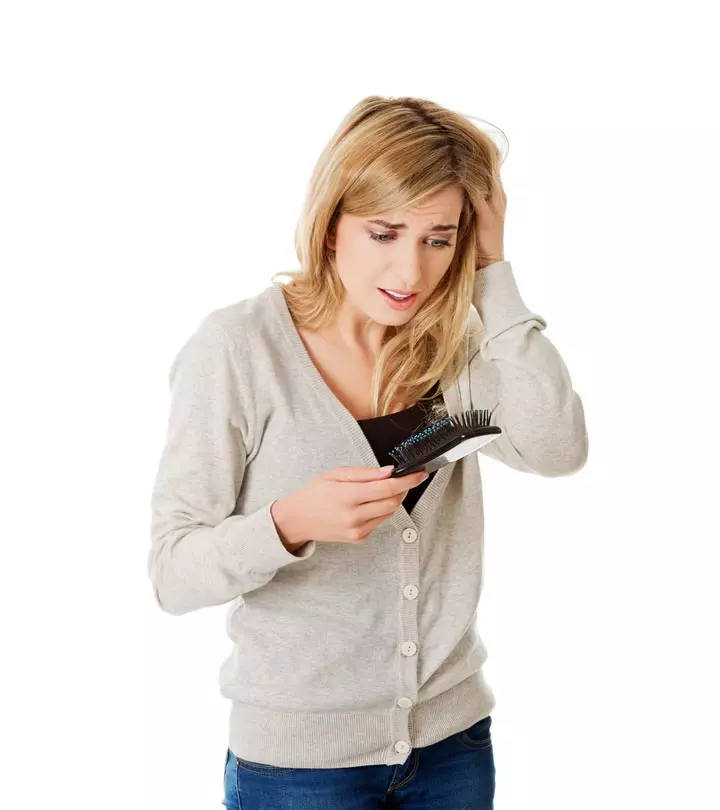
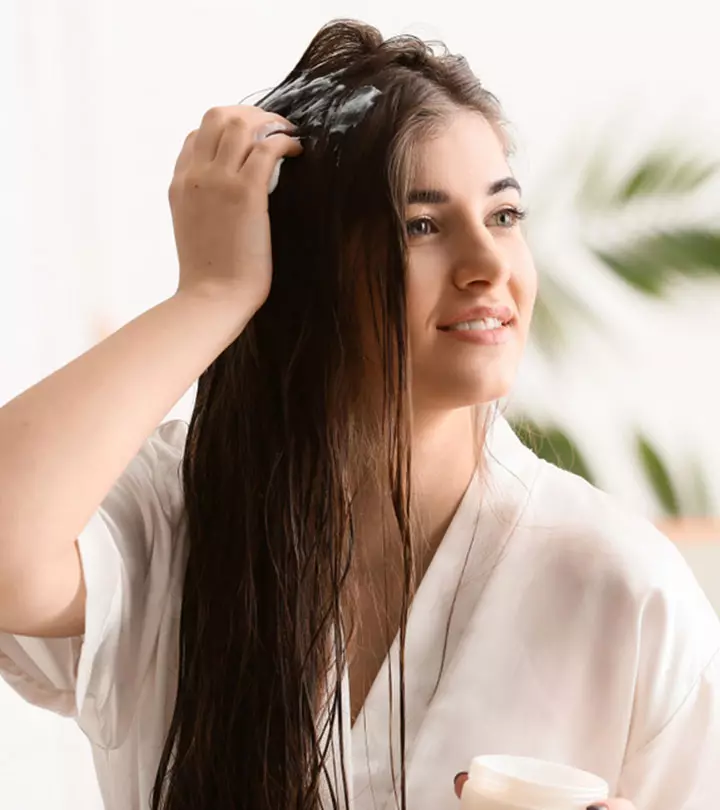
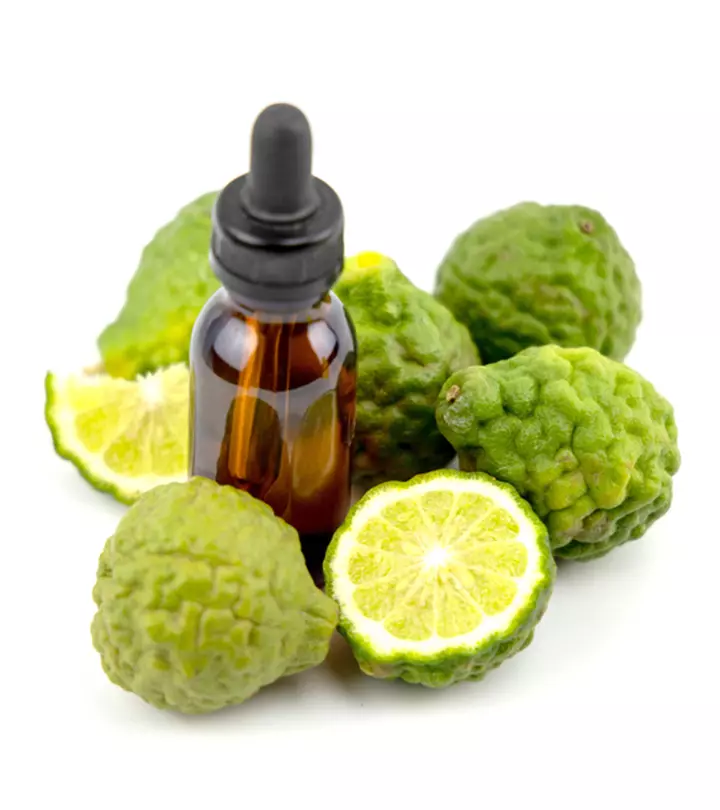
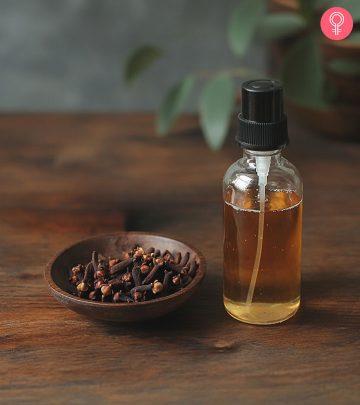
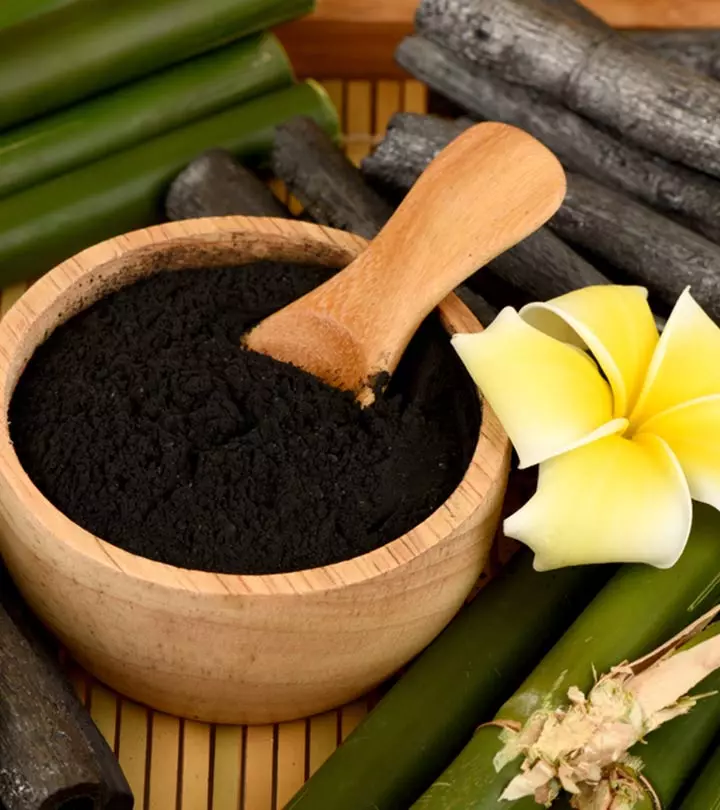



Community Experiences
Join the conversation and become a part of our empowering community! Share your stories, experiences, and insights to connect with other beauty, lifestyle, and health enthusiasts.